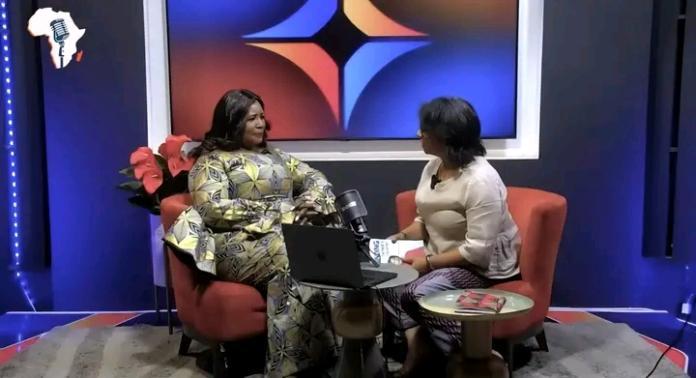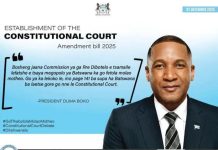Africa-Press – Zambia. In a wide-ranging interview with British veteran broadcaster Martine Dennis, former Minister Dora Siliya retraced her political journey and the hurdles she faced as a woman navigating both the media and the political arena. She spoke eloquently about gender stereotypes, the challenges of breaking barriers, and the difficulty of being taken seriously in male-dominated spaces.
She also addressed issues surrounding cybersecurity and the Public Order Act (POA), conceding that these are legacy instruments inherited from past administrations, a rare moment of honesty, perhaps, but also one that conveniently absolves her of accountability for policies she once defended.
The conversation took a deeper turn when Siliya spoke about tribalism in Zambia, warning that if left unchecked, it could one day spark civil conflict. Yet the contradiction was hard to ignore: she lamented the dangers of tribalism while speaking as though she were a bystander, not a participant in the very politics that entrenched it.
Siliya’s attempt to distance herself from the system she helped sustain feels less like reflection and more like revisionism, a selective memory wrapped in moral caution. True accountability requires confronting the past, not editing it.
Noticeably missing from the interview was a candid discussion about her own role in perpetuating tribal politics during her time in government. This omission is telling. Dora Siliya helped entrench tribal mobilisation, particularly in the Eastern Province, and the political seeds she planted continue to bear fruit in Zambia’s toxic political discourse today.
In October 2020, while campaigning in Eastern Province, Siliya was recorded saying, “Tongas have risen against us Easterners… we must fight.” The remarks, published by News Diggers, explicitly framed politics as an inter-tribal contest, not one of ideology or policy.
She used the message to rally an Eastern voting bloc, presenting the election as a battle between “Easterners” and “Tongas.” Civil society groups, including Transparency International Zambia (TIZ), condemned her rhetoric as toxic and dangerous, warning that it risked inflaming ethnic tensions to win votes for the Patriotic Front (PF).
Over time, she reinforced this divisive narrative, defending the East while branding Southern Province as “tribal,” thereby othering UPND strongholds and justifying bloc voting in the East. Her campaign style nationalised local elections, urging voters to act out of regional loyalty, portraying rivals as part of a “Tonga project.”
Independent media reports and civil society statements documented this pattern, describing it as ethnic mobilisation disguised as political strategy.
This brings us to a moral question:
What is the difference between Dora Siliya and Mumbi Phiri?
Both women employed divisive tribal rhetoric during their time in politics. Yet public condemnation and political consequences have largely fallen on Mumbi Phiri, while Siliya’s similar conduct has often escaped comparable scrutiny.
If Zambia is to confront tribalism honestly, then accountability cannot be selective. Condemning one and excusing the other is hypocrisy masquerading as morality.
Dora Siliya’s interview was polished, articulate, and reflective, but only in parts. What it lacked was courage: the courage to own up to her complicity in the very tribal politics she now warns could destroy the nation.
True leadership demands not just hindsight, but humility and responsibility. Until then, her so-called reflections remain what they appear to be, convenient amnesia dressed as wisdom.
For More News And Analysis About Zambia Follow Africa-Press







